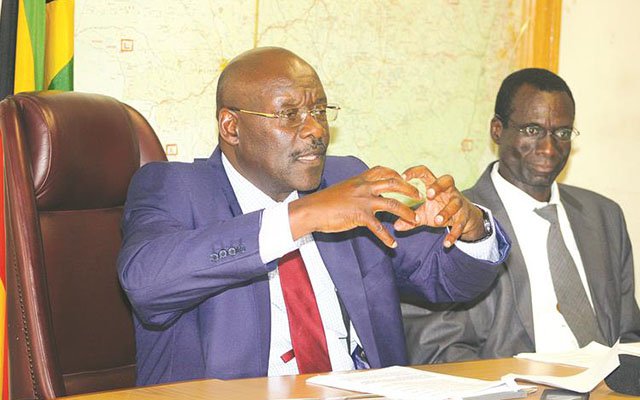Govt threatens striking doctors, withholds pay
By Helen Kadirire
Government yesterday attempted to coerce striking doctors to resume work by withholding salaries and allowances.

Defiant doctors said they will not yield to the threats until government acceded to their demands for better pay and working conditions.
In a circular to senior health officials copied to Health Services Board executive director Ruth Kaseke and Salary Service Bureau paymaster Brighton Chizingo, Health and Child Care ministry permanent secretary Gerald Gwinji said doctors who had been absent from work for 14 days would be denied their salary and allowances.
The circular makes reference to Public Service Commission (PSC) circular 18 of 2000 which empowers heads of ministries, departments and offices to suspend salaries of absent employees.
“The salary and allowances should be ceased immediately on the 14th day of continuous absence from duty by advising the Salary Service Bureau directly,” Gwinji said.
Mxolisi Ngwenya, spokesperson for the Zimbabwe Hospital Doctors Association (ZHDA), which represents more than 1 000 members, said the government has chosen the wrong approach to end the strike.
He said these coercive mechanisms are intended to force doctors back to work but instead, they have strengthened their resolve. After so much sacrifice they feel there’s nothing more to lose.
“Members have stated that they are not going back to work. Instead of threatening our members, we urge the ministry to go on to resolve the root issues as they are aware that we have genuine grievances,” Ngwenya said.
Public hospital doctors — who have been on strike for two weeks — said they did not down tools only over their welfare issues, but also due to “lack of basics such as gloves”.
Ngwenya said they risked getting infected or even infecting patients.
Apart from the gloves, he said they did not have intravenous fluids — popularly known as drip.
“The problem is that basic things such as gloves are not there in our hospitals. Imagine that doctors have to risk infecting and getting infected by patients while working without gloves,” he said.
“Doctors have to take the risks just…to treat patients. And even if the gloves are in stock, they are usually of a very low quality and that exposes doctors a lot,” Ngwenya said.
“There is also the issue of intravenous fluids which patients have to buy themselves because they are not in hospitals. Whenever they are available, they are easily depleted,” Ngwenya said.
The ZDHA spokesperson added that nevirapine, which is used in prevention of HIV transmission from mother to child, is out of stock, exposing unborn babies to infection.
Ngwenya said mothers who are already struggling to get to clinics and hospitals have to buy the drugs for $50 to protect their unborn children.
“$50 is a lot of money for an already struggling patient to pay for nevirapine.
“We are talking about eliminating mother to child transmission but that can never happen because even if the drugs are available, they are expired which further exposes the child to HIV as the drug does not work.
“Babies lose out a lot because apart from nevirapine shortage, there is also no BCG for them.
“Children have to either be detained in hospitals for longer than usual or have to return for the dosage when it is available on a later date,” he said.
Ngwenya argued that doctors cannot do anything without drugs and equipment because after examining a patient, they have to prescribe drugs which are always out of stock.
“How can we talk about free healthcare at public institutions when there are no drugs?
“The only thing that is free is admission and food. It is pointless to examine someone and not treat them fully for their affliction.
“We always have to wait for a patient to buy the drugs and drip, which makes doctors’ work extremely difficult,” the ZDHA spokesperson said.
The doctors have been arguing that government does not prioritise the healthcare sector. DailyNews






